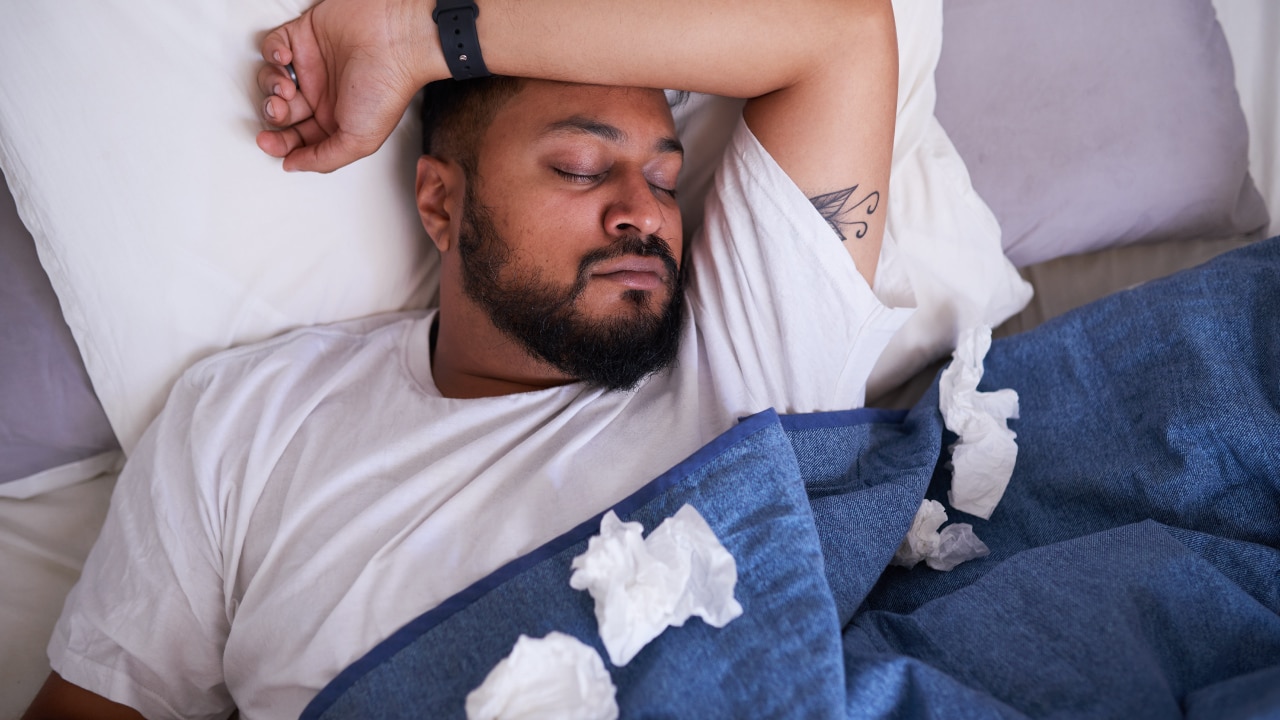Up to 40 percent of Americans experience allergic rhinitis (allergies) every year. If you’re getting ready for fall allergy season, this likely doesn’t surprise you. Common symptoms include sneezing, itchy/runny nose, watery eyes and poor sleep. Persons with allergies are more than twice as likely to have insomnia as those who don’t. Read on as we discuss how allergies and colds affect getting restful sleep.
How Allergies Affect Sleep
Allergens irritate your nasal passages and trigger uncomfortable symptoms like nasal congestion, sneezing and watery eyes. These symptoms usually get worse at night, and they have a big impact on your ability to breathe, so it’s easy to understand why they can inhibit sleep. Without a good night’s sleep, you’ll likely feel groggy the next day; chronic tiredness and sleep deprivation negatively affect our ability to perform at school and work. If allergies are negatively impacting your sleep, consider finding a sleep consultant at a sleep clinic near you.
Allergies Can Disturb Our Sleep in Several Ways
Persons with allergies are much more likely to experience sleep issues like insomnia, trouble falling and staying asleep, increased snoring, increased risk of sleep apnea and poor sleep efficiency. There is also a correlation between the severity of allergies and sleep issues, meaning more severe allergies generally lead to worse sleep. During allergy season, difficulty sleeping can develop into more serious sleep disturbances such as bedwetting and other forms of sleep-disordered breathing.
Sleep Better During Allergy Season With These Tips
Restful sleep is achievable, even if you have allergies. You can start getting better sleep by:
- Using an air purifier. Air purifiers can remove common household allergens like mold, pet dander, pollen and dust mites from your room.
- Closing doors and windows. Leaving windows and doors open during the day invites allergens into your home. Remembering to keep them closed will do wonders for your indoor air and sleep quality during allergy season.
- Keeping pets out of your bedroom. This may be tough to do, but you should if you want a good night’s sleep. Pet hair and dander can have a significant impact on your sleep, so try sleeping in a separate room from your pet.
- Showering before bed. After being out in the world, pollen has a sneaky way of accumulating on your clothes and body. Make showers a part of your bedtime routine so you can rest pollen-free.
- Making an appointment with a sleep consultant. Nobody is better equipped to alleviate sleep issues than trained professionals. They can even give you specific recommendations based on your particular allergies.
Say Goodbye to Sleepless Nights
Are you ready to make an appointment with a sleep consultant at a sleep clinic near you? We can help. At Whitney Sleep Center, we believe everyone is entitled to good sleep health, strong mental performance and a happy life. We provide sleep apnea tests and source the best CPAP machines and accessories to help you sleep peacefully. Our team is prepared to answer any questions you may have about sleep apnea, allergy season or other sleep issues you have. We can also help schedule a sleep consultation or treatment options if caffeine has negatively impacted your sleep. If you are experiencing chronic sleep deprivation, reach out to us now to make an appointment at the best sleep clinic near you.

